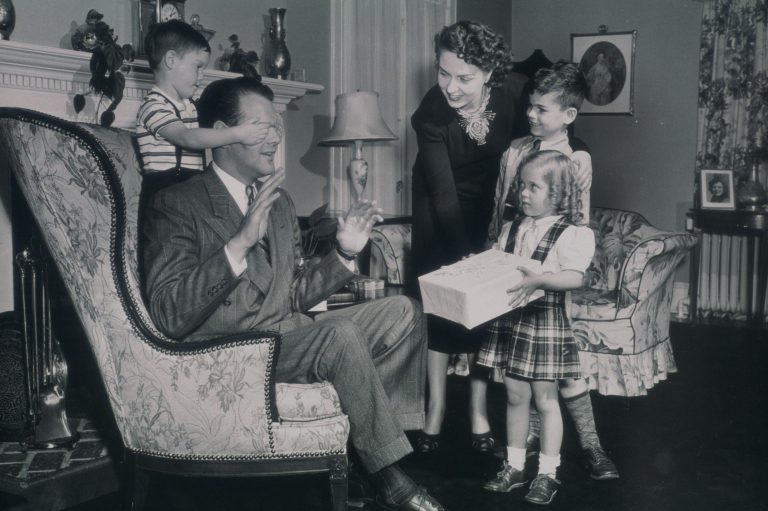The holiday season is a time of joy, togetherness, and giving. However, it’s not uncommon for teenagers to experience disappointment when their Christmas gifts don’t align with their expectations. As adolescents transition into more complex emotional landscapes, their desires and perceptions about gifts become increasingly intricate.
This article aims to provide parents, guardians, and caregivers with insights into understanding and effectively managing teenage disappointment surrounding Christmas gifts. By fostering open communication, empathy, and a supportive environment, we can navigate these challenges with care and compassion.
Table of Contents
ToggleKnowing that this is Normal
In fact, it’s relatively normal for some teenagers to display a degree of ungratefulness or disappointment with Christmas gifts. However, it’s important to approach this behavior with understanding and perspective. Adolescence is a time of significant change, and emotions can be complex and fluctuating. Here are some factors to consider:
Developmental Stage: Teenagers are navigating the transition from childhood to adulthood. They’re seeking more autonomy and developing their identities. This can lead to heightened expectations and desires, which may not always align with the gifts they receive.
Social Comparison: Teenagers are more attuned to social comparisons, which can influence their perception of gifts. Seeing their peers receive seemingly better or trendier presents might contribute to feelings of disappointment.
Desire for Independence: Teenagers often strive for greater independence and control over their lives. When gifts are chosen without their input, they might feel a lack of agency, leading to disappointment.

Influence of Media and Advertising: Advertisements and media often portray an idealized version of holiday gift-giving, which can create unrealistic expectations. Teenagers may feel that their gifts should match these idealized standards.
Expressing Emotions: Teenagers are learning how to navigate their emotions, and disappointment might be more visible than other emotions. Sometimes, expressing dissatisfaction about gifts is a way for them to cope with other underlying emotions.
Desire for Personalization: As teenagers develop their individual tastes and interests, they might hope for gifts that reflect their unique personalities. Gifts that don’t align with their preferences might lead to feelings of ungratefulness.
Lack of Understanding: Teenagers might not fully grasp the effort and thoughtfulness that goes into gift selection. They might not recognize the financial constraints or the emotional value behind the presents.
Mood and Context: Teenagers’ reactions to gifts can also be influenced by their current mood, stress levels, and the general atmosphere at home during the holiday season.
Learning Opportunity: These moments provide opportunities for growth. Parents and guardians can use this as a chance to teach gratitude, empathy, and effective communication.
Individual Variation: It’s important to remember that not all teenagers react the same way. Some may express ungratefulness more than others, while some may genuinely appreciate the effort behind the gifts they receive.

How to Deal with Teenagers’ Ungratefulness of Christmas Gifts
Acknowledge Their Feelings
When faced with a disappointed teenager, the first step is to acknowledge their feelings. Understand that their emotions are valid and part of their growth process. Disappointment is a natural reaction when expectations aren’t met, and it’s crucial not to trivialize or dismiss their sentiments. Create a safe space for them to express their thoughts openly without fear of judgment.
Communicate Openly
Engage in an open and non-confrontational dialogue about their feelings. Ask them to express what they had hoped for and why it mattered to them. Effective communication involves active listening—let them share their perspectives without interrupting or imposing your views. By showing that you genuinely care about their emotions, you create an atmosphere of understanding and empathy.

Manage Your Reactions
As a parent or guardian, it’s essential to manage your own reactions to their disappointment. Avoid becoming defensive or frustrated, as these reactions can shut down communication. Instead, remain calm and patient. Your emotional regulation sets an example for them on how to cope with disappointment constructively.
Emphasize Gratitude and Perspective
While addressing their disappointment, gently remind them of the true spirit of the holiday season. Encourage them to focus on the positive aspects of the gifts they received rather than dwelling solely on what they didn’t get. Help them cultivate gratitude for the thought and effort put into selecting their gifts.
Empower Decision-Making
Empower your teenager by involving them in the decision-making process for future holidays. Discuss gift preferences and create a list of items they’d like, helping manage their expectations. This collaborative approach not only gives them a sense of agency but also reduces the chances of disappointment.
Encourage Expression Through Gratitude
Encourage your teenager to express gratitude for their gifts, regardless of whether they met their expectations. Gratitude is a powerful emotion that can shift their focus from disappointment to appreciation. This practice also fosters positive relationships and teaches them the value of acknowledging others’ efforts.
Provide Perspective on Value
Help your teenager understand the value of gifts beyond their material worth. Discuss the sentiment, effort, and thoughtfulness behind each gift. By focusing on the emotional value of presents, you can help them appreciate the deeper connections these gifts represent.
Offer Alternative Outlets
If their disappointment lingers, suggest alternative outlets for their feelings. Creative activities like writing, drawing, or even discussing their feelings with a friend or counselor can provide a constructive way for them to process their emotions.

Encourage Healthy Coping Mechanisms
Disappointment is a part of life, and learning healthy coping mechanisms is crucial. Teach them techniques such as deep breathing, mindfulness, or physical activities to manage their emotions. These skills will serve them well beyond the context of receiving gifts.
Lead by Example
As a parent or guardian, you play a significant role in shaping how your teenager handles disappointment. Demonstrate healthy coping strategies by sharing your own experiences and how you manage your feelings when things don’t go as planned.
Plan Meaningful Experiences
Shift the focus from material gifts to meaningful experiences. Consider planning activities that allow for quality time and shared memories. Engaging in activities they enjoy can overshadow any initial gift-related disappointment.
Teach Graciousness
Teach your teenager the importance of being gracious even when faced with disappointment. Expressing disappointment in a polite and respectful manner demonstrates emotional maturity and cultivates positive relationships.

Reflect on the Essence of Giving
Use this situation as an opportunity to reflect on the essence of giving and receiving. Discuss how the act of giving is about making someone feel appreciated and loved, rather than solely meeting their expectations.
Encourage Gift-Giving
Encourage your teenager to participate in giving gifts to others. Being on the giving end can help them appreciate the effort it takes to choose thoughtful presents, fostering empathy and understanding.
Seek Professional Help if Needed
If their disappointment persists and significantly impacts their emotional well-being, consider seeking guidance from a mental health professional. They can provide coping strategies and tools to navigate such emotions effectively.
Conclusion
Navigating teenage disappointment surrounding Christmas gifts requires a delicate balance of empathy, understanding, and communication. By acknowledging their feelings, fostering open dialogue, and guiding them toward healthier perspectives, parents and caregivers can help teenagers process their emotions in a positive and constructive manner. Ultimately, these experiences can serve as valuable lessons in resilience, empathy, and emotional growth, setting the stage for more meaningful and fulfilling holiday seasons in the future.












+ There are no comments
Add yours